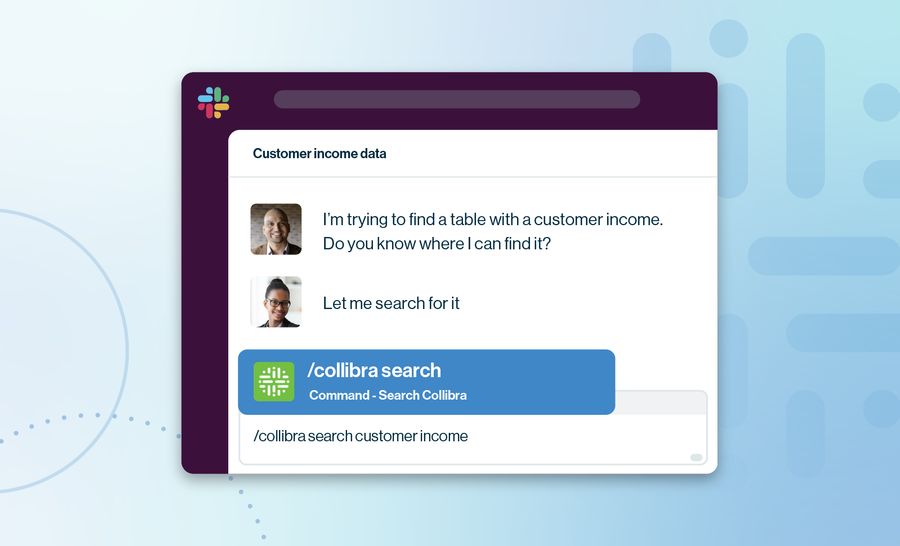Data governance doesn’t have to be boring: Get executive buy-in with storytelling

Data governance doesn’t have to be boring — nor should it be. Adobe Senior Manager of Data Governance Joseph Wallace rightly challenged this and other misconceptions at the Data Citizens 2024 conference in Orlando, FL.
Joseph was part of Adobe’s data governance team when the company first bought and implemented Collibra — a brand-new product at the time — and his experience has taught him that data governance is about unlocking the business potential of data, not just policing it.
According to Joseph, the reality of data governance in business is anything but boring. He has found that executives will buy into bids for data governance programs fairly easily — as long as teams deploy the right storytelling strategy.
“The thing about data governance is you need to focus on the business value,” he highlights. Data governance serves as a catalyst that empowers collaboration across departments, drives innovation by ensuring quality data, and transforms data into actionable insights. Good storytelling is the key to getting the board on board.
Five winning attitudes for data governance success
To ensure data governance programs work in practice — not just in theory — Joseph recommends adopting five key attitudes to prime organizations and their executives for the story to come.
- Stay curious: Joseph’s background isn’t in data, or even tech. He graduated from law school and got into finance at Adobe. But what he retained was a curiosity about where specific data came from and how he could trust it.
- Challenge assumptions and the status quo: After moving to operations, Joseph helped build a data lake — and found 25 different people reporting the same metric and arguing about the “right” answer. This is exactly what data governance seeks to solve, by building a consensus. Rather than accepting the situation at hand, Joseph got to work building the data governance program.
- Emphasize transparency and foster trust: “Everybody owns something somewhere,” Joseph says. Even those who don’t know about or understand the datasets they own are often responsible for them.
- Promote continuous improvement: Both people and processes can benefit from ongoing data governance initiatives. A culture of continuous improvement ensures businesses maximize how they’re using the data, not just how much they’re collecting.
- Prioritize actions that lead to meaningful outcomes: “Identify who owns what, why they’re doing it, and how that’s going to impact the rest of the company,” Joseph recommends.
The proactivity embodied in these principles set the stage for data champions to secure buy-in with a truly compelling tale.
Five easy steps to crafting an engaging story
Stories sell, and that goes for executives as much as anyone else. When data governors spin it right, the buy-in naturally follows. Here’s how to achieve that:
- Align with organizational objectives: Start with a problem — a dilemma, in storytelling terms — but keep it small. After tackling that, move on to a bigger dilemma. As each problem connects to the next, the narrative will underscore data governance’s role in fixing organizational problems.
- Highlight immediate benefits and quick wins: “Don’t sit on it,” Joseph says. Be as proactive and self-promoting as possible.
- Show impact by speaking in terms of ROI and compliance: “Tie it back to financials,” Joseph says, “because executives have no clue what you do.” Speak the language of other business lines to garner trust.
- Share success stories from different business lines: When executives can see how data governance impacts multiple business units, they’re more likely to buy into a data governance program — especially if it’s already working.
- Address challenges and outline a clear action plan: When getting knocked down, get back up again. Show executives how setbacks will be remedied.
Hit all five steps, and executives will likely be ready to forge ahead with data governance. Yet there may still be some residual resistance. Joseph shares some insight on how to overcome even the most entrenched skepticism.
Five common data governance misconceptions, debunked
Joseph went from pleading with Adobe’s CEO and board to implement data governance to now reporting to them quarterly on how the program is faring. “It’s taken us from a position of begging for people to do what they’re supposed to do to [a point where] I’ve got so much work, I can barely breathe — which is good,” Joseph says. “You want to be at that place.”
How did Joseph do it? By making sure to knock down five common data governance misconceptions as he told his story.
- Data governance isn’t just rules: It’s a facilitator of data-driven decisions. Instead of reminding teams to tag columns, data stewards and governors need to explain why they should tag their columns — what the value is going to be.
- Data governance isn’t boring: It encourages creativity by providing a trusted data foundation. “Data drives all our companies,” Joseph says. “Everyone at Adobe is either producing or consuming data, so data governance impacts and is important for everyone.” Without data governance, there would be no Adobe.
- Data governance doesn’t complicate operations: It simplifies them by clarifying roles and responsibilities. Teams sometimes struggle to put data governance into practice because they don’t grasp its importance in their role. But once people understand why they’re doing what they’re doing, they’ll begin to reap the benefits.
- Data governance isn’t an obstacle: It enhances data usability, supporting agility and innovation. It’s woven into the fabric of daily operations, guiding decision-making, data quality, and usage practices. And just like any skill, data governance approaches evolve. Organizations learn from past initiatives, adapt to new data landscapes, and continuously seek ways to improve.
- Data governance isn’t only relevant for data experts: When everyone adopts data governance principles, a culture of data literacy and responsibility blooms. Every employee in an organization contributes to and benefits from a robust data governance framework — not just IT and data professionals.
The work of countering and correcting these misconceptions goes hand-in-hand with getting executive buy-in. Doing so in tandem with the right story is the key to putting any data governance program on the path to success.
Four key takeaways from a data governance champion
Storytelling works like a charm for executive buy-in. But there are some solid business heuristics that data governors should remember and apply to all business dealings (executive or otherwise) to enhance the reputation of data governance in company culture.
- Think big, start small, iterate often: “Where do you want to be in five years? What could this look like?” Joe recommends asking. Businesses should find and reel in the small fish until they’re ready to catch bigger ones.
- ABC (Always Be Closing): Immortalized by “Glengarry Glen Ross,” this serves as a reminder that data stewards constantly need to preach the value of using their catalogs in a productive way.
- Nobody says no to governance (until you ask them to do something): Connect the data governance dots to show people how data fits into their own roles and responsibilities. A quick fix is to make their life easier in some concrete way.
- Stay resilient: Even when the answer is always no, never give up. “Keep iterating and keep trying,” Joseph says. Iterate until something resonates. “You’re going to get there: You’re doing good things, and you’re in the right business.”
Why follow these guidelines? Because data is the foundation of the future — and of everything that comes out of the technology industry and beyond. “Everything is data,” Joseph says, “and it’s only going to get more and more important.”
Data governance is a responsibility shared by all who contribute to a culture of data excellence. Data excellence means customer satisfaction and business growth — and Collibra Data Governance is the ticket to both.
***
This article is based on the Adobe discussion at the Data Citizens 2024 conference in Orlando, FL, bringing together the world’s most innovative community of data leaders to experience breakthrough solutions. Collibra puts reliable, high-quality data in the hands of business data citizens.
Related articles

Data GovernanceFebruary 14, 2025
Why we are the data and AI leader for you

Data GovernanceJuly 28, 2025
Your new shortcut to trusted data: Collibra’s two-way Slack Integration

Data GovernanceMay 24, 2022
The journey to data catalog and governance success: A customer perspective

Data GovernanceOctober 12, 2023
Improved user provisioning leads to calmer seas and smoother sailing
Keep up with the latest from Collibra
I would like to get updates about the latest Collibra content, events and more.
Thanks for signing up
You'll begin receiving educational materials and invitations to network with our community soon.
